B.Sc. - Culinary Science
Durgapur
3 or 4 years
UG
MAKAUT
10+2 passed in any stream from a recognized board. Candidates appearing for Class XII final can also apply.
To complete admission online, follow the steps below:
After pursuing B.Sc. in Culinary Science, one can seek employment as:
You can also get job opportunities in food research and development companies.

Taco Bell
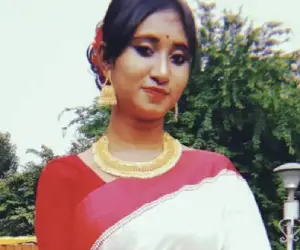
Hyatt Regency

ITC Ekaaya Mementos Udaipur
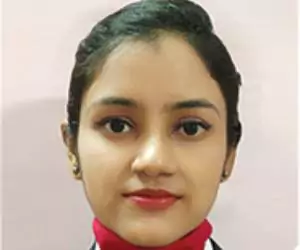
Oberoi Amar Vilas
Course Details of B.Sc. – Culinary Science are as follows –
The landscape of journalism has undergone a seismic shift in recent years. Traditional media, like newspapers, television, and radio, once the pill...
Read MoreWith digital cinema taking over, the film industry has moved from using film to using digital technology for every step, from filming to editing an...
Read MoreThe Bachelor of Business Administration (BBA) programme at NSHM Durgapur, one of the best BBA colleges in Durgapur, has been structured to gi...
Read MoreMeet our faculty members

Principal & Professor Department of Tourism & HospitalityDepartment of Hotel Management & Catering Technology
Durgapur
Ph. D. in Management
MBA, Pondicherry University, and MA Psychology, IGNOU
B.Sc Zoology, TMBU and DHMCT & AN, IHM BBSR
Sushant University Dean Business School Gurugram
15 Years
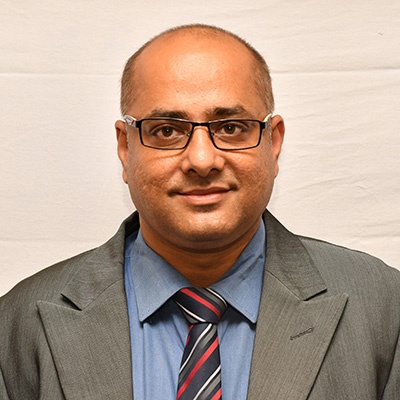
Department of Hotel Management & Catering Technology
Durgapur
RESEARCH METHODOLOGY, PRINCIPLES OF MANAGEMENT, FOOD AND BEVERAGE SERVICE
RSESEARCH AND DEVELOPMENT
PhD in Tourism and Hospitality Services Management, IGNOU
MSc in HMCT, Hotel Management and Catering Technology, TGOU, Nagaland,
NSMS-Durgapur, HOD- Food and Beverage Service, 2005-2006
18.3 Years
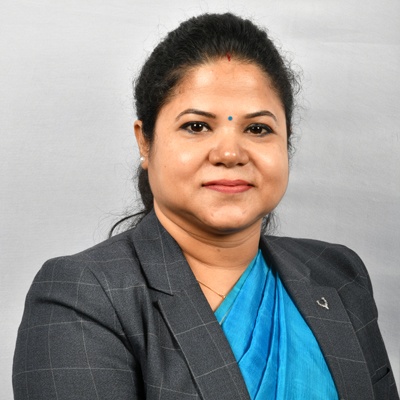
Department of Hotel Management & Catering Technology
Durgapur
Tourism Geography and International Tourism, Eco Tourism and Sustainable Development, Environmental Science in Tourism, Tourism Policy, Planning and Development, Travel Agency and Tour Operation Management, Legal and Ethical issues in Tourism, Tourism Products and Destination Management, Indian History and Culture, ICT in Tourism.
Sustainable Tourism, Tourism Geography, Tour operations, Eco Tourism, Air fare Ticketing
Pursuing
MBA (Tourism Administration), Tourism Management, Jiwaji University
B. Com (Taxation), Commerce, R.D.V.V.
TMI Academy of Travel Tourism and Aviation
14 Years
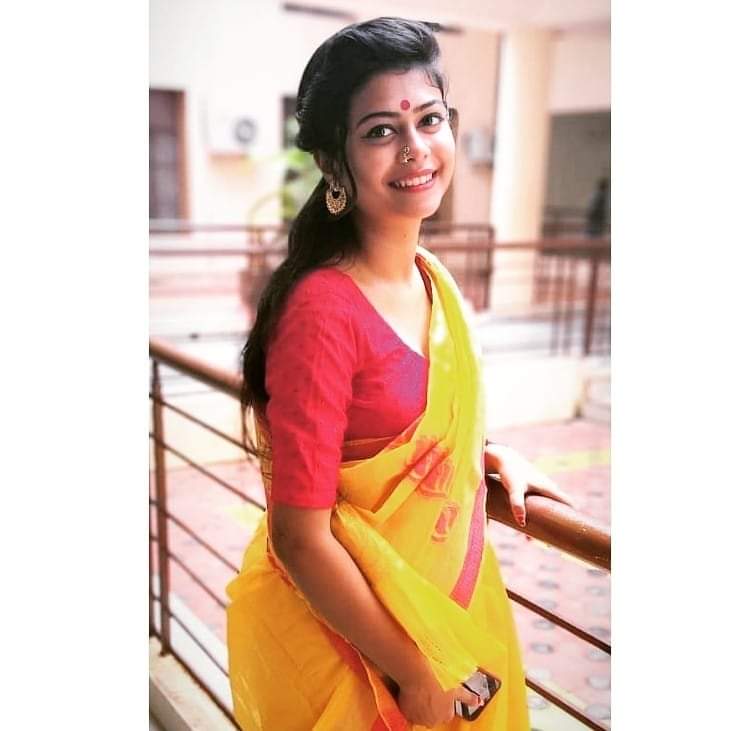
Department of Hotel Management & Catering Technology
Durgapur
Tourism Products, Service Marketing, Eco Tourism, Travel Agents and Travel Operations
Special Interest Tourism, Cultural Tourism
Mttm, North Eastern Hill University,
Bttm, Indian Institute of Travel and Tourism Management,
Kingston Educational Institute
0.6 Years
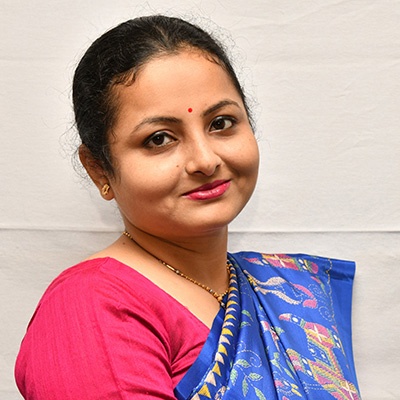
Department of Hotel Management & Catering Technology
Durgapur
Housekeeping, Front Office, Hospitality Management, Facility Planning, Personality Development.
Rooms Division, PD
M.Sc in Tourism and Hospitality Management Tourism and Hotel Management Madurai Kamaraj University
B.Sc in Hospitality and Hotel Administration Hotel Management IGNOU and National Council Hotel Management and Catering Technology (IHM, Bhubaneswar)
Oberoi Hotels and Resorts Housekeeper ( Housekeeping Manager) Joined - June 2005 & Left - May 2010
13 Years

Department of Hotel Management & Catering Technology
Durgapur
1) HM101 2) HPM101 3) BSCA103 4) GE5B04 5) Training & placement
Food production & Pattessiere.
M.Sc. in Hotel management. Annamalai University
B.Sc. in Hotel Management & Tourism Annamalai University
RIG institute of Hospitality & Management
17+ Years

Department of Hotel Management & Catering Technology
Durgapur
Housekeeping, Front Office, Basic Accounting, Retail Management
M.Sc - HMCT&Ti, Panjab Technical University
B.Sc in Hospitality and Hotel Administration, IGNOU
Siliguri Institute Of Technology, Assistant Professor
12 Years
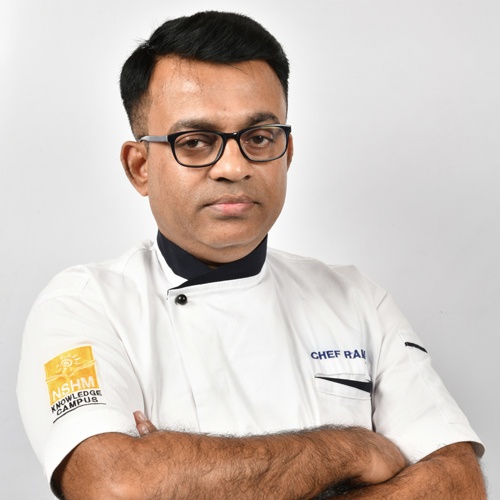
Department of Hotel Management & Catering Technology
Durgapur
FOOD & BEVERAGE PRODUCTION, BAKERY CONFECTIONERY, O.B, HRM, PRINCIPLES OF MANAGEMENT.
CULINARY & MANAGEMENT
PURSUING PhD FROM ASSAM DOWN TOWN UNIVERSITY
MASTERS IN TOURISM MANAGEMENT FROM I.G.N.O.U.
Food Tech., Jadavpur University
KOOKIES JAR, CHEF,1998-99
25 Years
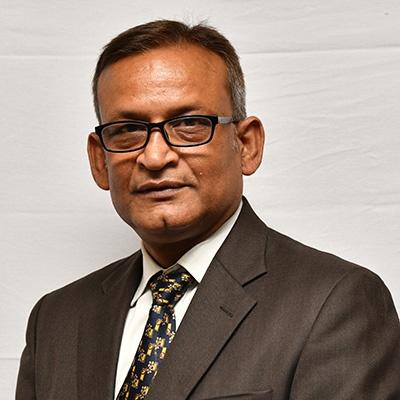
Department of Hotel Management & Catering Technology
Durgapur
Food and Beverage Service, F & B management, Hotel Information system, Property development Mgmt,Facility mgmt and Planning, HRM
Food and beverage service and Managment
Masters in travel and tourism Management, Madurai Kamraj University
B.Com, Commerce, Burdwan University
Durgapur Educational Society, Study In charge, October 1998, September 2008,
24 Years
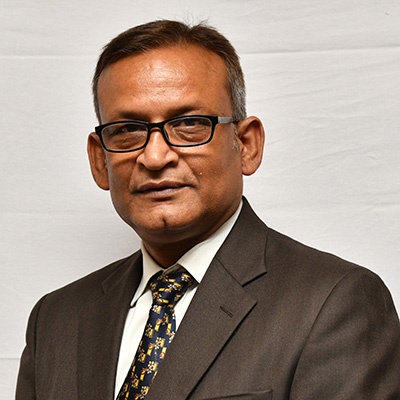
Assistant Professor Department of Hotel Management & Catering Technology
Durgapur
B. Hotel Management & Catering Technology, B.Sc. Hospitality & Hotel Administration, B.Sc. Culinary Science, M.Sc. Hospitality Management
Food and Beverage Service, Food and Beverage Management, Food Costing, House Keeping, Understanding Hotels
B. Com., Burdwan University
Durgapur Educational Soceity, Lecturer
22 Years
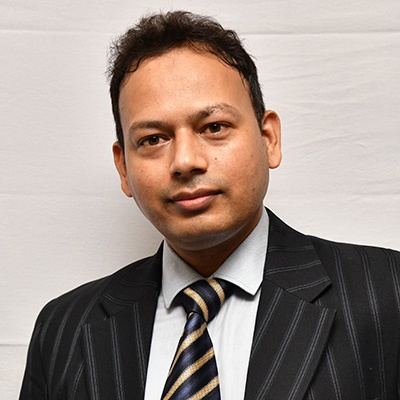
Department of Hotel Management & Catering Technology
Durgapur
Food & Beverage Management, Corporate Image, HRM, POM
Management
MASTERS IN HOTEL MANAGEMENT, INTRODUCTION TO HOSPITALITY, HOTEL INDUSTRY IN INDIA, COMMUNICATION IN HOTELS,HOTEL MATERIAL MANAGEMENT,F&B SERVICE, F&B PRODUCTION, MARKETING RESEARCH, SALES MANAGENENT FOR HOTELS. WILLIAM CAREY UNIVERSITY,
BA ENGLISH, ENGLISH-I&II, FICTION & DRAMA, HISTORY OF ENGLISH LITERATURE & LANGUAGE, PROSE, POETRY, INDIAN WRITING IN ENGLISH. PERIYAR UNIVERSITY, SALEM
Lords Institute of Management, Surat Gujrat. As Sr. Lecturer From 06/07/2015 to 30/03/2018
9.11 Years
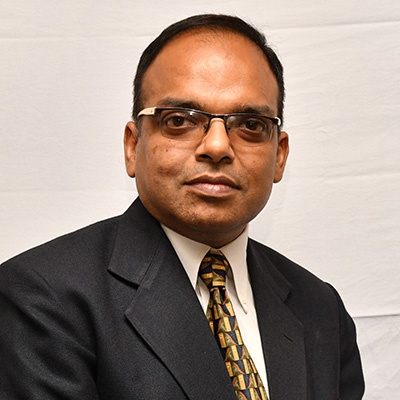
Department of Hotel Management & Catering Technology
Durgapur
Accommodation Operations, Business Law, Introduction to Management
Accommodation Operations, Front Office Operations, Management, Soft Skills, Stress Management
Pondicherry University, Department of Tourism Studies
Masters in Tourism Management, IGNOU,
BSC, (MATHS, Phy, Chem) Ch Charan Singh University Meerut
Hotel K C Residency Jammu, Asstt Manager Housekeeping, Joined June 1998, left January 2005
18.8 Years
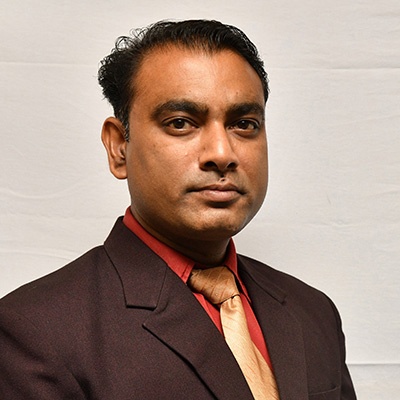
Department of Hotel Management & Catering Technology
Durgapur
F&B SERVICE Theory and Practical, Research Methodology, Facility Planning
Mixology ,Research, Projects Design and Implementation
Masters in Tourism Management,IGNOU
BA- Calcutta University 2000 Starts 1998 End 2000
DSMS Durgapur
17 Years
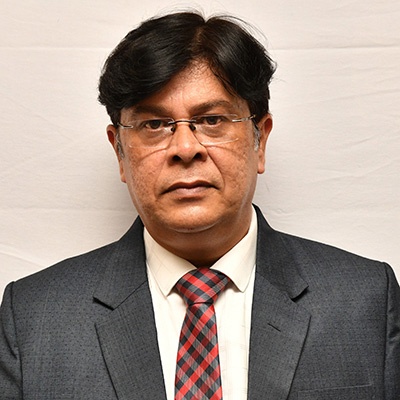
Department of Hotel Management & Catering Technology
Food Production, F&B Management, Indian Heritage, Personality Development
F&B Production and Management
Hotel Management Catering Technology and Applied Nutrition
DSMS College, HOD Hotel Management
25.3 Years

Department of Hotel Management & Catering Technology
Durgapur
Food Production, Management Studies
Master of Hotel Management, Uttarakhand Open University
B.Sc in Hospitality and Hotel Administration, IGNOU
Chitkara School of Culinary Arts, Chitkara University. Chandigarh, Sous Chef Trainer
9 Years
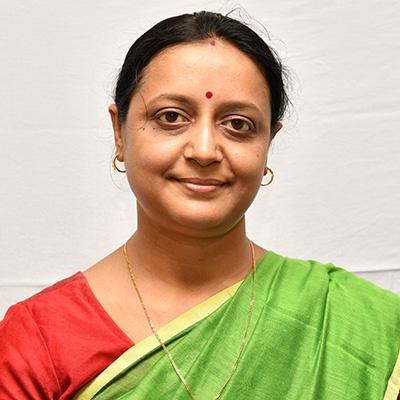
Department of Hotel Management & Catering Technology
Durgapur
Service marketing, Tourism marketing, Ecotourism & sustainable development, principles and practices, specialisation subjects ( travel agency management, itinerary costing)tourism products, research methodology and dissertation,transportation mgmt., etc
As Program Co-ordinator - Administration and Teaching • Guiding PhD scholar, Supervision P.G. Dissertation. • Coordinator of academic committee, Research Committee and Industry institute interaction. • Conducting conference, seminars, workshops and many events.
Ph.D. in Management Title of the thesis: “Mining Heritage Tourism – Preserving and Managing the site – A study of Dhanbad (Jharkhand) in India” The Dept. of Humanities & Social Science, National Institute of Technology, Durgapur, West Bengal, India.
M.B.A. (Tourism) The University of Burdwan, West Bengal, India .
BBA (Hons.), Marketing, service marketing, the University of Burdwan, West Bengal, India
DSMS, Durgapur, Lecturer, Joining: January 2009, Leaving: November 2009,
13 Years
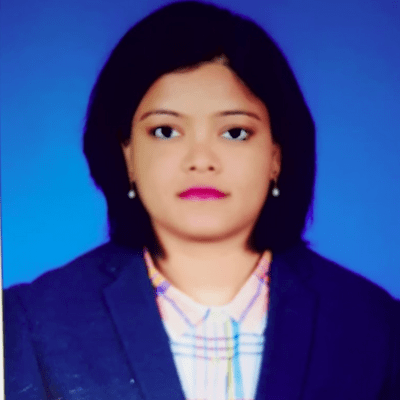
Department of Hotel Management & Catering Technology
Durgapur
Tourism Management, Tourism Geography and International Tourism, Tourism Products, MICE Management and Event Tourism.
Tourism Geography and Tour Operation.
PH.D. in Tourism Management, Indira Gandhi National Tribal University Amarkantak, Full Time. July 2016- September 2022.
M.A. in Tourism Management, Tourism Management, IGNOU
Bachelor of Tourism Studies, Tourism Studies, Distance.
Mount Carmel College,Bengaluru
8 Years